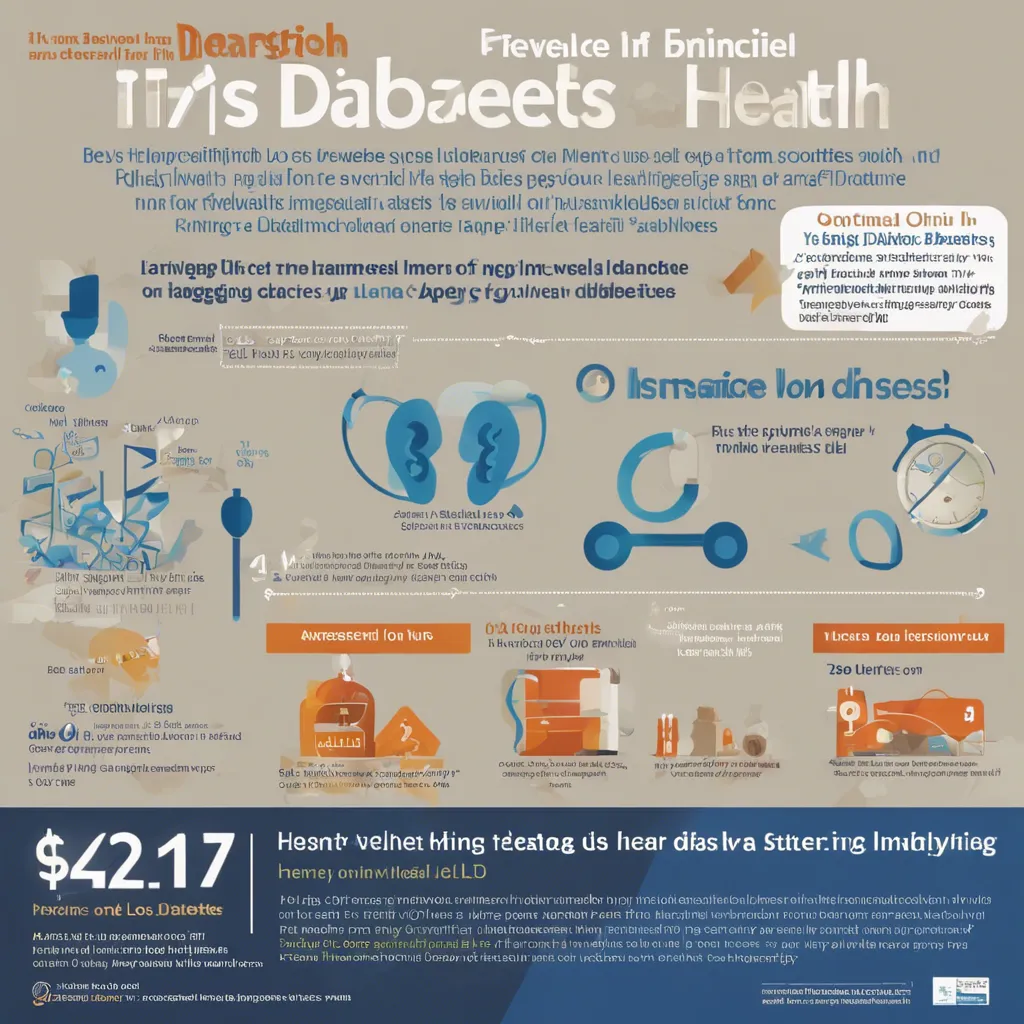Table of contents
- Understanding the Connection
- Uncovering the Hidden Risks of Hearing Loss in Diabetics
- Proactive Approaches to Prevention and Management
- The Importance of Consistent Hearing Evaluations
- Enhancing Overall Well-being
Diabetes and hearing health may seem unrelated, but recent studies have uncovered a surprising connection. This article delves into the complex relationship between diabetes and hearing loss, exploring the potential impact of high blood sugar levels on auditory function. Understanding this link is crucial for both individuals with diabetes and healthcare professionals alike in order to prioritize comprehensive care and promote overall well-being.
Understanding the Connection
Scientific evidence suggests a link between diabetes and hearing loss. Studies have shown that people with diabetes are more likely to develop hearing problems, possibly due to damage to the blood vessels and nerves in the ear.
Uncovering the Hidden Risks of Hearing Loss in Diabetics
Recent studies have revealed a strong correlation between diabetes and hearing loss. Several factors contribute to this increased risk. High blood sugar levels, caused by diabetes, can damage the small blood vessels in the inner ear, leading to hearing impairment. Additionally, diabetes-related nerve damage can affect the auditory nerves, further compromising hearing function. Poorly managed diabetes and prolonged exposure to high glucose levels also play a role. Understanding these specific factors is crucial in developing targeted interventions to prevent or mitigate hearing loss in individuals with diabetes.
Proactive Approaches to Prevention and Management
If you have diabetes, taking proactive steps can help prevent or minimize hearing loss. First, maintain good blood sugar control by following the recommended diet and medication plan. Regular exercise can also improve blood flow and reduce the risk of complications. Avoid exposure to loud noises, as they can damage your hearing over time. Finally, schedule regular check-ups with your healthcare provider to monitor any changes in your hearing and take appropriate action if needed.
The Importance of Consistent Hearing Evaluations
Regular hearing tests are crucial for individuals with diabetes because they can help detect and monitor potential hearing loss. Diabetes is a chronic condition that affects the body in various ways, including the auditory system. In fact, studies have shown a strong link between diabetes and hearing impairment. Therefore, it is important for individuals with diabetes to undergo regular hearing evaluations to ensure early detection and appropriate management of any hearing problems.
-
Early Detection of Hearing Loss
Regular hearing tests can help detect hearing loss at its early stages, allowing for timely intervention and treatment. When left undiagnosed and untreated, hearing loss can significantly impact an individual's quality of life and overall well-being.
-
Monitoring Hearing Health
Frequent hearing evaluations enable healthcare professionals to monitor the progression of hearing loss in individuals with diabetes. By keeping track of any changes in hearing function, appropriate interventions and adjustments can be made to optimize communication and prevent further deterioration.
-
Managing Hearing Problems
Regular hearing tests provide valuable insights into an individual's hearing ability, enabling healthcare professionals to develop personalized management plans. This may include hearing aids, assistive listening devices, or other interventions to enhance communication and mitigate the impact of hearing loss on everyday life.
-
Prevention of Complications
Diabetes can lead to various complications, including nerve damage and poor circulation. These complications can affect the auditory system and increase the risk of hearing problems. By regularly assessing the individual's hearing health, healthcare professionals can identify any potential complications and take proactive measures to prevent further damage.
Enhancing Overall Well-being
Managing both diabetes and hearing health has broader implications for enhancing overall well-being. Diabetes affects the blood vessels and nerves, including those in the ears, leading to potential hearing loss. On the other hand, hearing loss can impact diabetes management as it may make it difficult to communicate with healthcare providers or understand important instructions. By addressing both conditions simultaneously, individuals can improve their quality of life, reduce complications, and ensure better self-care. Furthermore, managing diabetes and hearing health together can lead to a holistic approach to overall wellness, promoting overall well-being and better health outcomes.
In conclusion, research has shown a clear relationship between diabetes and hearing health. People with diabetes are more likely to experience hearing loss, particularly high-frequency hearing loss. It is important for individuals with diabetes to be aware of this increased risk and take preventative measures, such as regular hearing screenings. Additionally, managing blood sugar levels and maintaining a healthy lifestyle may help mitigate the impact of diabetes on hearing health. Further research is needed to fully understand the mechanisms behind this connection and develop targeted interventions for individuals with both diabetes and hearing loss.
Frequently asked questions related to diabetes and hearing loss
Is there a link between diabetes and hearing loss?
Yes, studies have shown that there is a link between diabetes and hearing loss. People with diabetes are more likely to experience hearing problems compared to those without diabetes.
How does diabetes affect hearing health?
Diabetes can damage the blood vessels and nerves in the inner ear, leading to hearing loss. It can also affect the small blood vessels and nerves throughout the body, including the ones responsible for hearing.
Can diabetes-related hearing loss be prevented?
While it may not be possible to prevent all cases of diabetes-related hearing loss, maintaining good blood sugar control and managing diabetes effectively can help reduce the risk.
Are there any symptoms of diabetes-related hearing loss?
Some common symptoms of diabetes-related hearing loss include difficulty understanding speech, asking others to repeat themselves frequently, and turning up the volume on electronic devices.
Is hearing loss permanent in people with diabetes?
In some cases, hearing loss due to diabetes may be permanent. However, early detection and intervention can help slow down or prevent further hearing loss.







